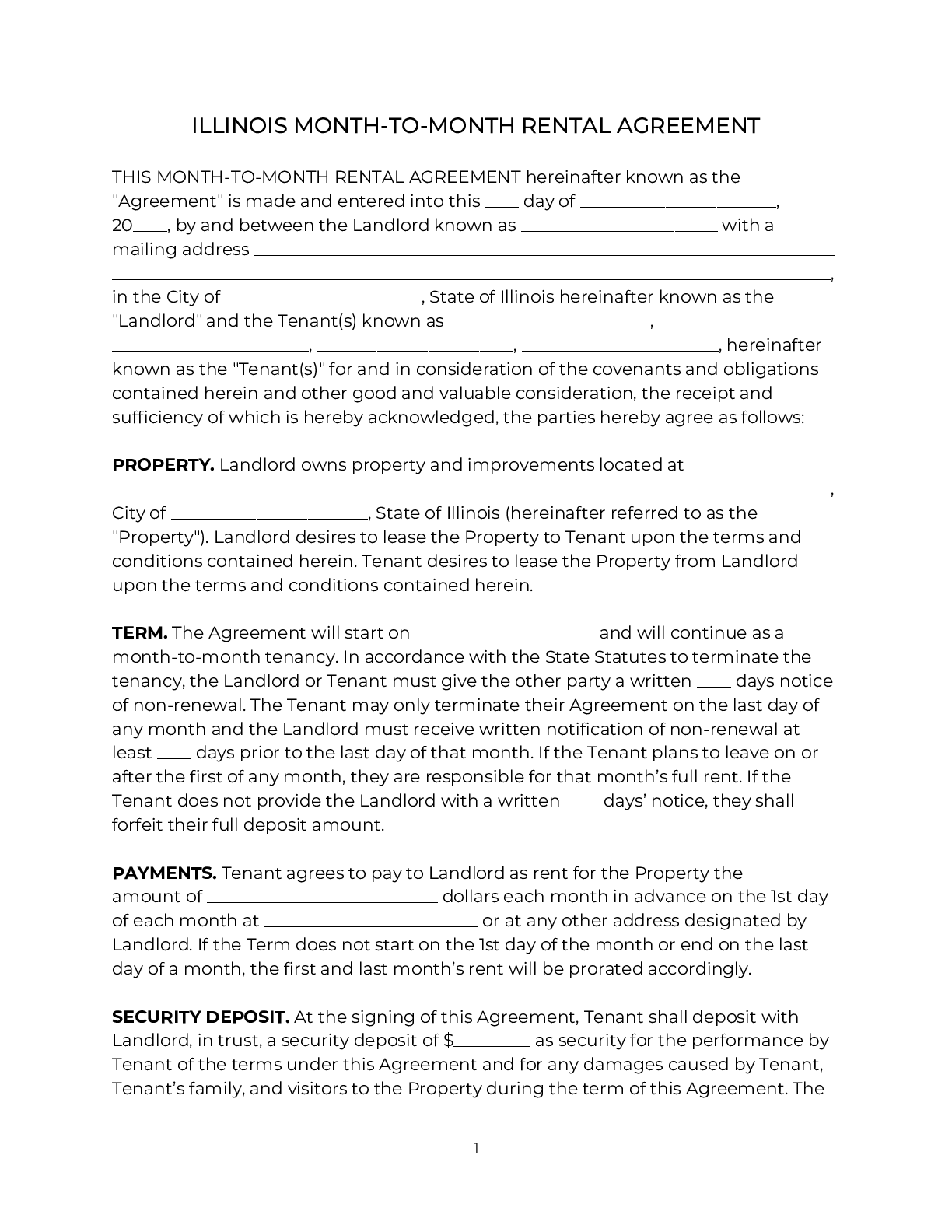Entering in to a lease agreement is really a significant step for anybody looking to maneuver in to a new home. While it's often a seamless process, the finer print of your lease agreement is not something to skim over. Each state has its own set of regulations and laws that govern these contracts, and Illinois is not any exception. Before signing any illinois lease agreement, here's what tenants need to understand to safeguard their rights and ensure a smooth tenancy.
The Purpose of a Residential Lease Agreement
A lease agreement is really a legally binding contract between a tenant and a landlord. In Illinois, a residential lease typically outlines the terms and conditions under that the tenant can occupy the property. Including details like the duration of the lease, the monthly rent, if it is due, and any extra fees or terms specific to the rental unit.

Terms and Duration of the Lease
Lease agreements in Illinois come in two main forms: year-to-year leases and month-to-month leases. The lease's terms and duration depend on what's stipulated in the agreement. If your term lease is in effect, both the tenant and the landlord are bound by the rental agreement for a fixed period, typically one year. On another hand, a month-to-month lease renews automatically each month and can be terminated by either party with proper notice.
Understanding the duration is a must since it not merely sets enough time frame you're committed to the property but also can impact your rights linked to rental increases and termination.
Rent and Utility Payments
The lease agreement should clearly state the monthly rent amount, when it's due, and how to pay for it. Along with rent, the lease can also specify any relevant security deposit and the utility responsibilities of the tenant and landlord. Tenants should know about their obligations regarding utilities and any penalties for late payments or unpaid bills.
In Illinois, landlords are required to provide tenants with a 5-day grace period for rent payments before charging late fees. Some leases may extend this grace period, so it's important to examine and understand each clause.
Property Maintenance and Repairs
The landlord is usually in charge of maintaining a habitable living environment, based on the Illinois Implied Warranty of Habitability. This warranty is a part of every written or oral lease, and it cannot be waived by the tenant. Tenants must report any maintenance or repair needs promptly, and landlords are usually required to produce repairs within a reasonable timeframe, as specified by state law.

Understanding the lease's maintenance and repair clauses will help you know which issues are your responsibility as a tenant and which should be addressed by the landlord.
Ending the Lease
In case a tenant needs to re-locate before the lease term is up, you will find specific guidelines for providing notice. In Illinois, notice requirements vary with regards to the form of lease agreement. It's crucial to understand these requirements before attempting to get rid of the lease early to avoid any potential legal repercussions.
A proper comprehension of your Illinois residential lease agreement empowers you to produce informed decisions and ensures that the rights and obligations are clearly defined. Just like any legal document, if there's something in the agreement you don't understand, seek clarification from your landlord or an attorney before signing.
